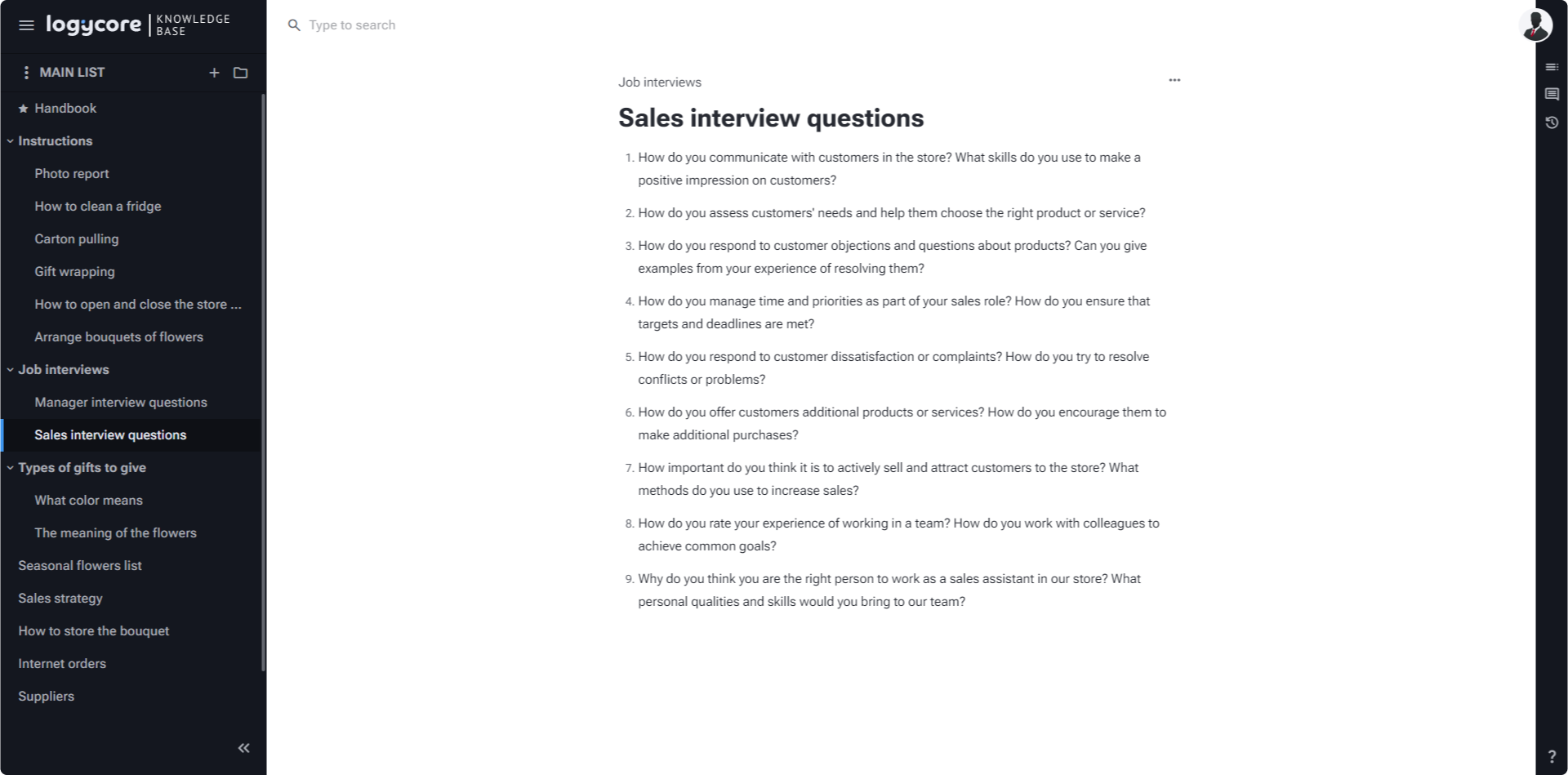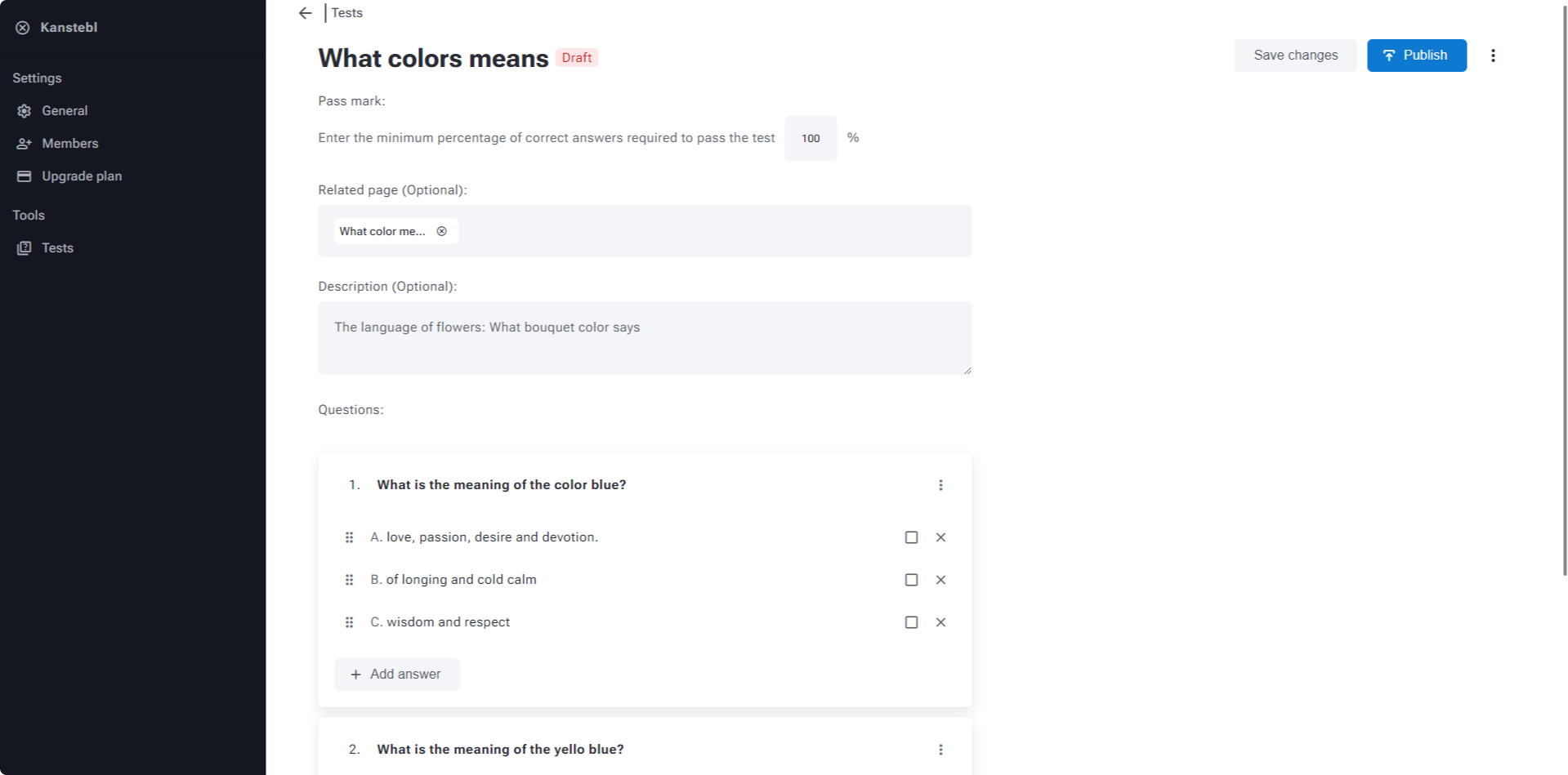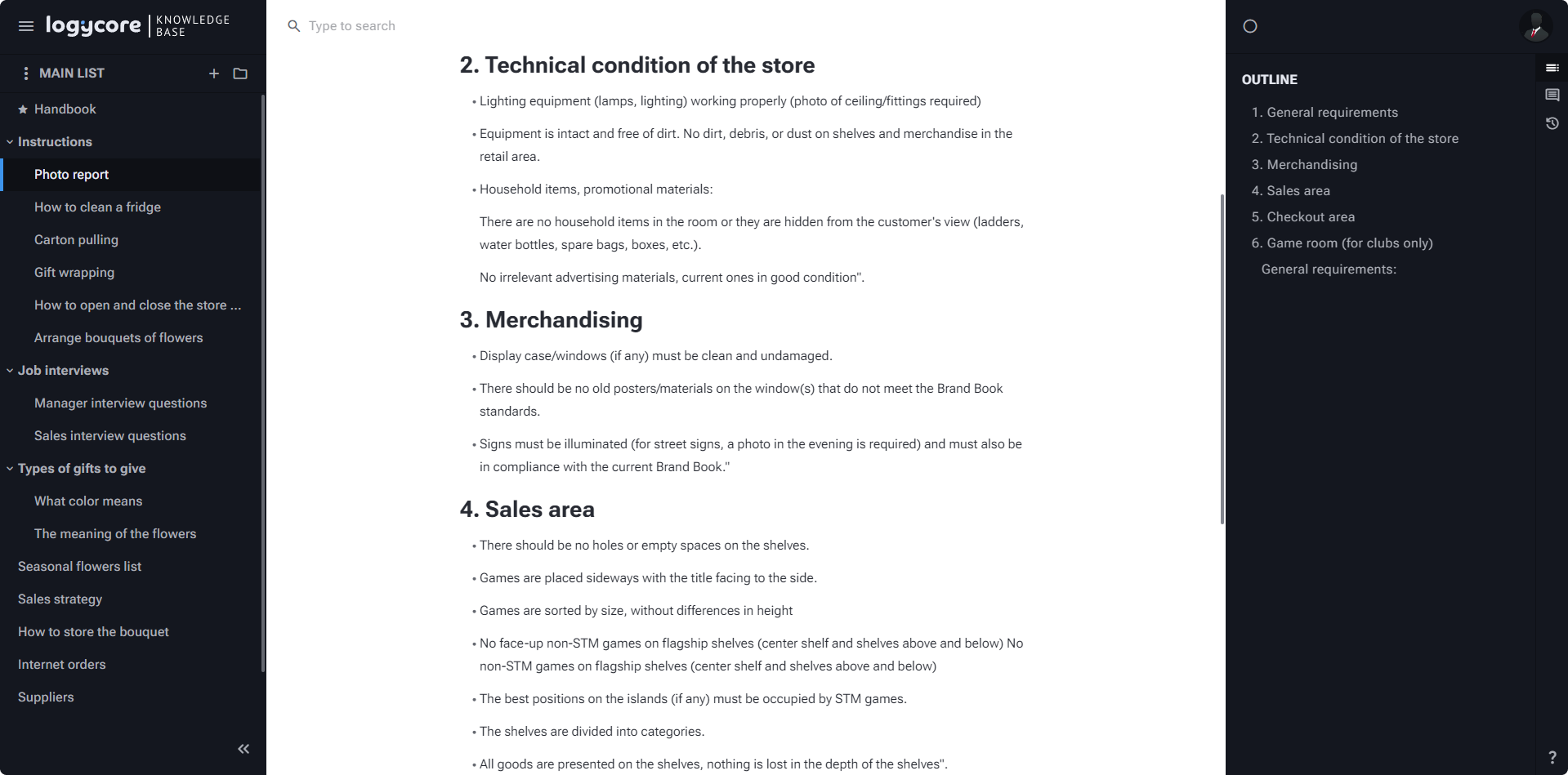Knowledge base and employee training
Every business leader will sooner or later be faced with the need to hire new employees. This is a critical moment where many mistakes can be made. Although it is impossible to avoid them completely, using a knowledge base can help prevent a significant portion of them.
Interview
Due to heavy workloads, managers often fail to properly prepare for interviews, leading to significant errors in the candidate evaluation process:
- Instead of asking key questions, managers often resort to random questions that fail to address important issues.
- Questions are formulated spontaneously and vary from candidate to candidate, creating an uneven playing field.
- Candidates for different positions are asked the same general questions that do not reflect the specifics of their potential roles in the organization.
As a result, hiring decisions are based on incomplete or inaccurate data, increasing the risk of hiring an unsuitable candidate and potential losses for the organization
To minimize these risks, it is recommended that an online knowledge base be used to pre-populate a list of questions. This list will always be available during the interview process, allowing for a systematic and consistent evaluation of each candidate based on the same criteria.
Such an approach will ensure a more accurate and fair assessment of all candidates, reducing the likelihood of errors in the hiring process.

Internship
After successfully passing the interview, candidates move on to the next stage of on-the-job training. This period has several key objectives:
- Learn important job skills.
- Mastering the critical information needed to carry out the job duties.
- Acquaintance with the work environment.
- Integrate into the team.
Difficulties often arise during this phase due to the lack of standardized norms: skills and knowledge are transferred to trainees in an unsystematic manner, resulting in varying levels of preparation. As a result, each employee has a different set of skills, often not in line with management's intentions. The only way to overcome the challenges of training and acquire valuable employees is to create a knowledge base
To ensure the acquisition of necessary job skills during training, the knowledge base contains articles with detailed instructions for each aspect of the work process. This helps to standardize task execution and ensures that all processes are performed according to established standards.

To enable employees to efficiently absorb the necessary information, the knowledge base is supplemented with everything needed for work. Thanks to the ability to access the base from any device at any time, everyone can study the materials at their convenience. Quick search provides instant access to the required information.

At the end of the training period, it is important to assess how well candidates have absorbed the material. Different knowledge bases include different tools, one of which is testing. This tool allows the creation of tests based on the uploaded information. The results of these tests help to evaluate the extent to which each trainee has absorbed the knowledge.

Job
When a candidate moves from an internship to a permanent position, it does not mean that their training is complete and that attention to their development can stop. In a dynamic work environment, skill requirements are constantly changing and some knowledge may become outdated. Therefore, it is crucial to systematically check and update employees' knowledge throughout their tenure. The tools provided by knowledge bases play a key role in this process. Not only do they help maintain the relevance of professional knowledge, but they also provide access to information that may be needed in different work situations. By using such resources, employees can quickly find the data they need, improve their skills, and adapt to new challenges, thereby increasing the overall efficiency of the organization.

Conclusion
The presence of well-structured knowledge bases in an organisation plays a key role in managing employees at all stages of their career within the organisation. From the initial recruitment stage, where knowledge bases help to reduce errors during interviews, to the ongoing training and adaptation of working staff, these resources provide the necessary tools for standardising and optimising work processes. This significantly improves the quality of training for newcomers during internships and promotes their professional growth and effectiveness in the workplace. Knowledge bases become not just a supporting tool, but a vital asset that helps build a workforce capable of responding to the challenges of a dynamically changing business environment.
